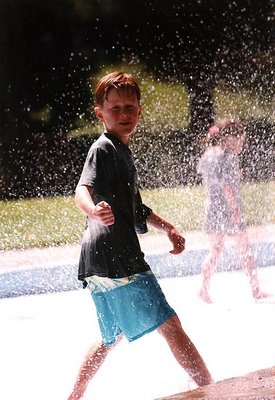What do you do when one of the world’s pre-eminent religious leaders sits behind you on the plane? Dish on China? Share your iPod? Pretend to levitate? Or maybe, nothing at all?
So begins Kevin Sites latest diary entry ... I couldn't help but smile.
He continues:
Location: The aisle of Jet Air 737 making a stop in Jammu, Kashmir.
You: Bald-headed and bespectacled, wearing an off-the-shoulder scarlet and orange robe, smelling of sandalwood incense and lotus flowers and toting a briefcase with a "Free Tibet" sticker.
Me: Long-haired, bleary-eyed foreign correspondent, wearing a dirty black T-shirt, khaki pants, smelling of last night's curry and toting a look of unrivaled disbelief.
If intrigued, read on here
I left New Zealand mid-2003, bound for Istanbul and a new lif. After two years, a Belgian guy lured me into his world, deep in the heart of Europe. For a long time I was an in-process immigrant. One day we married. These days it's about photography, a little red wine and wandering ... and so the journey goes.
Wednesday, May 31, 2006
Did you know ...
Since the start of the war in 2003, 71 journalists have been killed in Iraq, a figure that does not even include the more than two dozen members of news media support staff who have also died, according to the Committee to Protect Journalists.
That number is more than the 63 killed in Vietnam, the 17 killed in Korea, and even the 69 killed in World War II, according to Freedom Forum, a nonpartisan free speech advocacy group.
The New York Times is running the story.
That number is more than the 63 killed in Vietnam, the 17 killed in Korea, and even the 69 killed in World War II, according to Freedom Forum, a nonpartisan free speech advocacy group.
The New York Times is running the story.
Rethinking Borders
There was a link in Foreign Policy online to an interesting article in the Washington Post .
The article was written by Moisés Naím, editor of Foreign Policy magazine and author of "Illicit: How Smugglers, Traffickers, and Copycats are Hijacking the Global Economy".
Governments and citizens are used to thinking of a border as a real, physical place: a fence, a shoreline, a desert or a mountain pass. But while geography still matters, today's borders are being redefined and redrawn in unexpected ways. They are fluid, constantly remade by technology, new laws and institutions, and the realities of international commerce -- illicit as well as legitimate. They are also increasingly intangible, living in a virtual and electronic space.
The article was written by Moisés Naím, editor of Foreign Policy magazine and author of "Illicit: How Smugglers, Traffickers, and Copycats are Hijacking the Global Economy".
Governments and citizens are used to thinking of a border as a real, physical place: a fence, a shoreline, a desert or a mountain pass. But while geography still matters, today's borders are being redefined and redrawn in unexpected ways. They are fluid, constantly remade by technology, new laws and institutions, and the realities of international commerce -- illicit as well as legitimate. They are also increasingly intangible, living in a virtual and electronic space.
Cindy and Immigration
Cindy, the American lawyer who was recently deported from Belgium, has continued to update her blog back home in San Diego ... she had me laughing over her most recent post this morning.
Here's a link to it and a small sampling of what she wrote.
She explains Like the good global citizen that I aspire to be, I tore myself away from the disaster I know as my own immigration crisis to check out the differences between the US visa application and the Belgian one. (You just might be surprised by the answer to that question - I was.)
She goes on with the piece that had me laughing: Still unsure as to which US visa application should be completed for comparison purposes, I pulled up Form DS-156. It is 41 questions long, not including, of course, the subparts.
Following are REAL (i.e., I swear I did not make these up!) questions copied from US Visa Application Form DS-156, to which the applicant is to check either Y or N:
Do you seek to enter the United States to engage in export control violations, subversive or terrorist activities, or any other unlawful purpose?
Are you a member or representative of a terrorist organization as currently designated by the U.S. Secretary of State?
Have you ever participated in persecutions directed by the Nazi government of Germany; or have you ever participated in genocide? (If you are smart enough to know the definition of "genocide", it pretty much stands to reason that you are smart enough to answer "no" to the question. Hell, even if you can't tell the difference between genocide and pesticide, you'd think context clues would kick in. Nazi = no! We call this question a "give-me" or a "freebie.")
Here's a link to it and a small sampling of what she wrote.
She explains Like the good global citizen that I aspire to be, I tore myself away from the disaster I know as my own immigration crisis to check out the differences between the US visa application and the Belgian one. (You just might be surprised by the answer to that question - I was.)
She goes on with the piece that had me laughing: Still unsure as to which US visa application should be completed for comparison purposes, I pulled up Form DS-156. It is 41 questions long, not including, of course, the subparts.
Following are REAL (i.e., I swear I did not make these up!) questions copied from US Visa Application Form DS-156, to which the applicant is to check either Y or N:
Do you seek to enter the United States to engage in export control violations, subversive or terrorist activities, or any other unlawful purpose?
Are you a member or representative of a terrorist organization as currently designated by the U.S. Secretary of State?
Have you ever participated in persecutions directed by the Nazi government of Germany; or have you ever participated in genocide? (If you are smart enough to know the definition of "genocide", it pretty much stands to reason that you are smart enough to answer "no" to the question. Hell, even if you can't tell the difference between genocide and pesticide, you'd think context clues would kick in. Nazi = no! We call this question a "give-me" or a "freebie.")
A Short Post
A word of warning ... if a friend offers to let you use their Canon EOS 350D, just say no if you're not in a financial position to immediately go out and purchase one.
Save yourself the heartbreak of having known something sublime ... and if you're dithering about purchasing one and you do have the cash, just go and get it.
Okay, so you'll never be home due to an overwhelming need to always be out and using your EOS but it doesn't matter ... you'll be really happy. I'm almost sure of it.
Save yourself the heartbreak of having known something sublime ... and if you're dithering about purchasing one and you do have the cash, just go and get it.
Okay, so you'll never be home due to an overwhelming need to always be out and using your EOS but it doesn't matter ... you'll be really happy. I'm almost sure of it.
Flower Mandalas
I just wandered over to David Bookbinder's blog and was stunned by the flower mandala images I found there.
He had written: Help Wanted: The Flower Mandalas Project! For the past two years, I've been taking pictures of flowers and manipulating the images to form mandalas. I'd like to assemble these images into a book, and I'd like your help.
What I have in mind is a book of 52 images, with one page containing a flower mandala and the opposite page a quotation that in some way complements the image. What I imagine is a collection of quotations, some of which relate to the flowers and their importance in literature, culture, art, and so on, while other quotations are simply thoughts or feelings the images evoke.
I welcome any and all responses. I will include, in the book's forward, how I came to the quotes I eventually end up using.
Thanks in advance!
He had written: Help Wanted: The Flower Mandalas Project! For the past two years, I've been taking pictures of flowers and manipulating the images to form mandalas. I'd like to assemble these images into a book, and I'd like your help.
What I have in mind is a book of 52 images, with one page containing a flower mandala and the opposite page a quotation that in some way complements the image. What I imagine is a collection of quotations, some of which relate to the flowers and their importance in literature, culture, art, and so on, while other quotations are simply thoughts or feelings the images evoke.
I welcome any and all responses. I will include, in the book's forward, how I came to the quotes I eventually end up using.
Thanks in advance!
Tuesday, May 30, 2006
A Favourite Poem of Mine
Blue Vigour
 I think, if you have lived through a war
I think, if you have lived through a war
or have made your home in a country
not your own, or if you've learned
to love one man,
then your life is a story.
Eight thousand feet about the sea's devotions
sail the four Ngong hills.
The East Wind - "King Solomon's favourite horse" -
rides over the plain to the foothills;
you follow the monsoon's path to my farm,
desert in your clothes and hair.
If you love a man who's not your husband,
your life becomes the story everyone tells.
For months we were still as animals
alert to an enemy. We stalked each other with the charged
passivity of the inevitable.
With the patience and impatience of obsession.
I learned about you
the way I learned about the river
at the edge of my farm -
I can't see it from the house
but know its path by the acacias
that grow along it.
What I couldn't foresee
led me to you.
During the act of greatest trust
my husband gave me a lasting gift.
I was rotten with his mal d'amour;
they had to send me home.
Almost thirty, back in my mother's house.
When I could walk again, her narrow arm
steered me through the garden,
green peony hands glistening
like the acres of coffee I'd left behind.
I leaned against her,
missing her youth as well as my own.
Home, yet not home.
Although the marriage was over,
I had the farm.
Although we hadn't touched yet,
I longed for Ngong and your body.
Sleepless on the boat
I pressed against the railing,
leaned into my future.
To deny another's happiness
by denying your own -
that could only be an adult misery.
I know your value
because you give yourself
just as you're leaving.
Each sojourn refines our feeling -
together we are stones tumbling to jewels,
beans polishing in the coffee-dryer,
gleaming under the lanterns.
When we stayed at your house
on the Takaunga, the moon was firm
in the shaking sky.
We were alive as coral pools,
where water shapes the rock
and rock shapes the water.
Each time you return
you ask for another story.
Your expectation lets me love you
when you're gone.
My wanting would have both encased me
and driven me out of my skin
like an insect under the canopy at night -
were it not for words.
Each day I write to greet you.
Those mornings when one side of my bed
is cool with your absence,
I rise to the window and loving you,
the Ngong hills gather me in.
With each parting
my heart is forced to grown,
because the only way to love you
is to love each particle of green and
each animal part of life -
muscle, skin and bone -
that dots and darts and hides
in the view from my room.
And now that you've learned to fly,
and really ride King Solomon's East Wind,
I have to love the air.
Anne Michaels
The Weight of Oranges Collection
 I think, if you have lived through a war
I think, if you have lived through a waror have made your home in a country
not your own, or if you've learned
to love one man,
then your life is a story.
Eight thousand feet about the sea's devotions
sail the four Ngong hills.
The East Wind - "King Solomon's favourite horse" -
rides over the plain to the foothills;
you follow the monsoon's path to my farm,
desert in your clothes and hair.
If you love a man who's not your husband,
your life becomes the story everyone tells.
For months we were still as animals
alert to an enemy. We stalked each other with the charged
passivity of the inevitable.
With the patience and impatience of obsession.
I learned about you
the way I learned about the river
at the edge of my farm -
I can't see it from the house
but know its path by the acacias
that grow along it.
What I couldn't foresee
led me to you.
During the act of greatest trust
my husband gave me a lasting gift.
I was rotten with his mal d'amour;
they had to send me home.
Almost thirty, back in my mother's house.
When I could walk again, her narrow arm
steered me through the garden,
green peony hands glistening
like the acres of coffee I'd left behind.
I leaned against her,
missing her youth as well as my own.
Home, yet not home.
Although the marriage was over,
I had the farm.
Although we hadn't touched yet,
I longed for Ngong and your body.
Sleepless on the boat
I pressed against the railing,
leaned into my future.
To deny another's happiness
by denying your own -
that could only be an adult misery.
I know your value
because you give yourself
just as you're leaving.
Each sojourn refines our feeling -
together we are stones tumbling to jewels,
beans polishing in the coffee-dryer,
gleaming under the lanterns.
When we stayed at your house
on the Takaunga, the moon was firm
in the shaking sky.
We were alive as coral pools,
where water shapes the rock
and rock shapes the water.
Each time you return
you ask for another story.
Your expectation lets me love you
when you're gone.
My wanting would have both encased me
and driven me out of my skin
like an insect under the canopy at night -
were it not for words.
Each day I write to greet you.
Those mornings when one side of my bed
is cool with your absence,
I rise to the window and loving you,
the Ngong hills gather me in.
With each parting
my heart is forced to grown,
because the only way to love you
is to love each particle of green and
each animal part of life -
muscle, skin and bone -
that dots and darts and hides
in the view from my room.
And now that you've learned to fly,
and really ride King Solomon's East Wind,
I have to love the air.
Anne Michaels
The Weight of Oranges Collection
Clare's Last Day in Antwerp
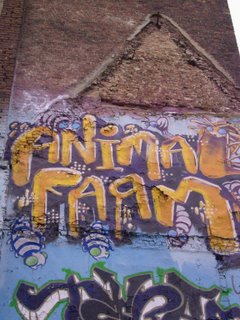 Yesterday ... Clare's last day in Belgium and many many things went slightly and/or very wrong.
Yesterday ... Clare's last day in Belgium and many many things went slightly and/or very wrong.We had been saving Middelheim's Open-Air Museum of Sculpture until Monday ... the park that has no visible staff, no entrance fee; the big beautiful park full of stunning sculptures but you know what ... it's closed on Mondays!
But why????
A smug woman with 4 slightly embarassed looking guests unlocked the entrance gate briefly, looked over at us and the two other hopeful park wanderers, looked outraged when Clare moved towards the gate, quickly locked it, then smiled at the privileged ones.
Walking away, I had to come up with some very convincing arguments about why we shouldn't just hop the fence ... winning the day with my description of my first run-in with Belgian rules and regulations and the fact a simple illegal road-crossing almost resulted in jail time.
Like most seasoned travellers, Clare doesn't carry her passport when a country seems safe and she's out with a local, and in doing so avoids worry about theft of passport. My imagined hopping the fence in to park scenario ran something like ... so we climb the fence, smug woman with key and guests spots us, calls police, they catch us, melt some when they discover we're Antipodeans then find out that Clare is without identification ... sigh.
We walked past the spot where, on our way to the park (an omen for sure), a girl duck had flown too low on her approach, smashing into the wire fence her boyfriend had cleared. I had never seen a concussed duck gather its dignity until that moment but she was quickly on her feet and walking towards her boy on the other side of the fence, albeit a little wobbly, slipping through the barred gate in a most enviable way.
So we headed into the city and oh what a bus ride!
I have never had a bus ride like that ride. We chose the back seat for spacious comfort but as the bus pulled away we realised we were sitting directly over the bus engine which sounded like a 50cc motor scooter on full throttle, although once hearing loss set in we both noted it also brought back memories of lawn mowing sessions back home; variations were the chainsaw on idle and/or that slow drill the dentist uses to grind out old fillings.
And perhaps that wouldn't have mattered but Middelheim back to the city seems to involve many stops, many streets, many many kilometres and so much of Antwerp city. It was a little depressing when we passed close to home. We shouted to each other over the engine noise, discussing the possibility of disembarking but there was always this feeling that 'just 5 minutes more' and we'd be there.
Ahhh, it wasn't to be, I should have guessed. The bus parked in a side street and the driver turned off the engine without an announcement. Bewildered passengers got off ... they were the Belgians, they knew where they were. I heard an English guy speak to the driver, asking 'what, where and why' but nicely.
I joined him ... clearly annoying the bus driver who eventually pointed out a tram line, not saying anything more than he wasn't going to the city ... perhaps he was unaware that his bus read 'Centraal Station'.
The British guy was lovely and we three talked all the way to the city. He too had been brought down by a policeman for incorrect road crossing, threatened with a 100euro fine and was made to cross the road twice with the lights. Interesting difference between his fining process and mine, did I mention he looked Turkish ...
We lunched then headed back out onto Antwerpen streets, pleased that we'd packed our umbrellas and pleased that they opened and closed easily due to the 37.5second showers every 17.2 seconds ...
We checked out two chocolate shops; world-traveller Clare found the Del Ray shop assistants just a little intimidating ... probably still suffering from the impact of the Brugge chocolate shop sign that said don't come in unless you are buying. I assured her this wasn't the case here in Antwerpen however the 52euro per kilo of chocolate moved us on anyway.
Burie Chocolatier was lovely, as usual however the shop assistant was frosty and there was some concern that she might tear the purse from Clare's hand, just to check that she wasn't lying about not having a 50cent coin. The chocolate was very very good though.
Then came the hail ... we were sheltering from that and when Clare said something about wine and home. I thought I must have spoken aloud.
Back home was lovely ... an island of calm for the shipwrecked.
It was sad sending her off on VLM's Fokker 50 last night; sad because she was leaving and she was a incredible guest ... and sad because she wasn't so sure about flying to London on a plane with propellers.
She's home safe and we've had heavy rainshowers, one hail storm, high winds and sunshine this morning ... ahhh Belgie.
Sunday, May 28, 2006
What Clare and Di Did Today ...
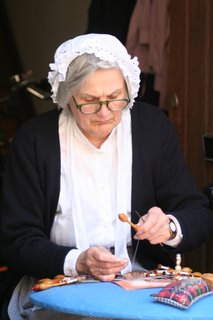 Clare and I wandered over to Brugge today ... all of my guests are taken to Brugge.
Clare and I wandered over to Brugge today ... all of my guests are taken to Brugge. Clare was toting her Canon EOS 350D. She shared it with me ... I took some photos and have added Canon EOS 350D to the 'things I must have when I am working list.
It's a stunning piece of machinery. I had hoped it would be too complicated but no, it was lovely.
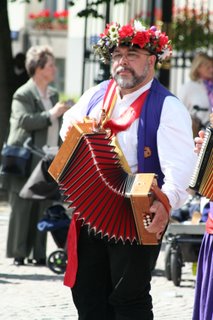 I used to adore my Canon EOS 300 but my ongoing incoming immigrant status has caused me re-evaluate film processing costs and unsurprisingly, I want to go digital.
I used to adore my Canon EOS 300 but my ongoing incoming immigrant status has caused me re-evaluate film processing costs and unsurprisingly, I want to go digital. Anyway, we put my 75-300mm Canon lens, with image stabiliser, onto Clare's digital camera and had fun finding out what was possible.
Above are just a small sampling of photographs Clare took today ...
Postscript: the woman was making lace dressed in authentic costume seated in the doorway of her home.
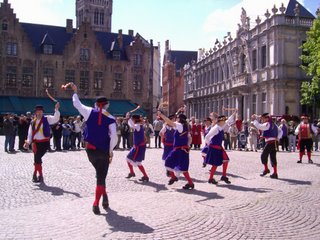 The musicians were part of some kind of Morris dancing display that we came upon as we wandered the squares and streets of Brugges.
The musicians were part of some kind of Morris dancing display that we came upon as we wandered the squares and streets of Brugges. One never quite knows what they will discover while out walking in Belgium ...
Saturday, May 27, 2006
Antwerp with the Australian
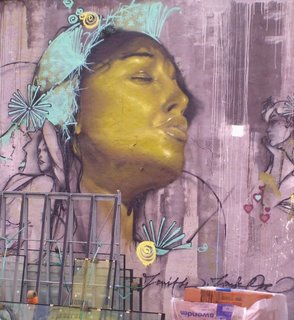 What do you do with a London-based Aussie who arrives here in Antwerp, laden down by bottles of New Zealand red wine?
What do you do with a London-based Aussie who arrives here in Antwerp, laden down by bottles of New Zealand red wine?Invite her to stay, but of course.
So it was that Clare, an old Istanbul friend, landed in Belgium Friday night. So we've test-driven the Kiwi reds and found them more than adequate ... (it has been SO LONG since I enjoyed good New Zealand wine).
We spent Saturday wandering in Antwerpen ... and I realised again how much I love the way that each guest gives a new view of this city I live in. The photos will prove it. We photographed cockroaches as big as my hand and all kinds of other fascinating subjects .. via graffitti.
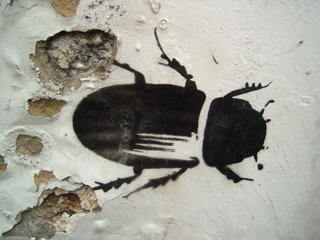 We ate waffles and explored the so-called Foreigners Market ... due to the fact that most stall owners are of foreign origin. We sampled the multitude of free olives and feta cheeses at the Moroccan stall and then sampled some more when we arrived at the French-speaking cheese guy's stall, buying a strong-tasting Brie that went so well with the wine this evening.
We ate waffles and explored the so-called Foreigners Market ... due to the fact that most stall owners are of foreign origin. We sampled the multitude of free olives and feta cheeses at the Moroccan stall and then sampled some more when we arrived at the French-speaking cheese guy's stall, buying a strong-tasting Brie that went so well with the wine this evening. And Clare was lucky enough to experience that very special customer service I've only experienced in Belgium so far ... the 3 seconds to make yourself and your order clear or the salesperson moves on to the customer behind you. ;)
A bow to tradition saw us resting in my favourite pub, Elfde Gebod - The Eleventh Commandment, evoking a spiritual moment by combining the drinking of alcohol in a place religiously named.
Friday, May 26, 2006
There is always the risk of falling into the space between you and home
Paraplu: a device consisting of a circular fabric canopy on a folding metal fram supported by a central rod, used as protection against rain.
And so it is that the ordinary umbrella is transformed into something more luscious in Nederlands.
The trams are running badly today ... changes created by deviations near Centraal Station as they lay new rails or roads, and rainy day notwithstanding I needed to pick up Gert's proof of illness papers at the doctor's whose offices fall into the cityscape between operational tram routes.
The walk wasn't so bad ... spring rain is wet but the wind wasn't cold and I had my enormous black papaplu. And without rain I wouldn't have noticed that the the stunning homes over in Zurenborg were built using materials that look good in the rain ... an inspired move on the part of the architects as rain is rumoured to be something Antwerpen does well sometimes.
I have had an extreme 24 hours ... feeling the seperation created by distance as people I love struggled back in New Zealand. Long phone calls home, a stiff neck and a headache today but that wasn't the sum total of experience. I lived another extreme too; that of the Belgian family gathered together for birthday celebrations.
Reassured about New Zealand, there was a party we were meant to attend and there I was enveloped by a feeling of family that I hadn't felt in a while.
It was a relief in a way, that other extreme where we only risked a slow death by food. Jan's barbeque food was heavenly, endless prawns, ribs and chicken pieces were washed down with Spanish champagne ... before main course, red wine and desserts.
Other grand news from the city of spring rain and grey clouds ... one of my favourite Australians flies in tonight. She's an old friend from my Istanbul days, so we'll go wandering some, photos to follow.
And so it is that the ordinary umbrella is transformed into something more luscious in Nederlands.
The trams are running badly today ... changes created by deviations near Centraal Station as they lay new rails or roads, and rainy day notwithstanding I needed to pick up Gert's proof of illness papers at the doctor's whose offices fall into the cityscape between operational tram routes.
The walk wasn't so bad ... spring rain is wet but the wind wasn't cold and I had my enormous black papaplu. And without rain I wouldn't have noticed that the the stunning homes over in Zurenborg were built using materials that look good in the rain ... an inspired move on the part of the architects as rain is rumoured to be something Antwerpen does well sometimes.
I have had an extreme 24 hours ... feeling the seperation created by distance as people I love struggled back in New Zealand. Long phone calls home, a stiff neck and a headache today but that wasn't the sum total of experience. I lived another extreme too; that of the Belgian family gathered together for birthday celebrations.
Reassured about New Zealand, there was a party we were meant to attend and there I was enveloped by a feeling of family that I hadn't felt in a while.
It was a relief in a way, that other extreme where we only risked a slow death by food. Jan's barbeque food was heavenly, endless prawns, ribs and chicken pieces were washed down with Spanish champagne ... before main course, red wine and desserts.
Other grand news from the city of spring rain and grey clouds ... one of my favourite Australians flies in tonight. She's an old friend from my Istanbul days, so we'll go wandering some, photos to follow.
Thursday, May 25, 2006
Annelies, Benny and Hone Heke
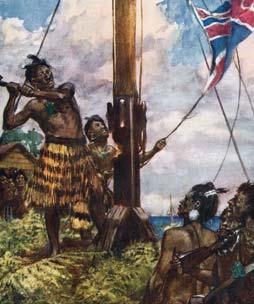 Annelies wandered by my blog the other day and I popped over to visit her at Hone Heke.com, curious about the name of the site.
Annelies wandered by my blog the other day and I popped over to visit her at Hone Heke.com, curious about the name of the site.The name Hone Heke comes from New Zealand so I asked why a Belgian was using it ...
Annelies expained, 'suffice it to say that during a wonderful holiday in New Zealand a couple of years ago, we were totally charmed by this famous Maori warrior who kept cutting down the flagpoles of the English colonists' and she directed me to her official explanation: Hone Heke, Maori warrior chief New Zealand (1807-1850). Hone Heke was one of the first chiefs to sign the British Government's Waitangi Treaty with the Maori people in 1840.
But when the commercial operations of settlers began to threaten Maori trade and land ownership, Heke led several battles against the British, famously chopping down their flagpoles at Russell, North Island. He never lost a battle and neither side was able to claim absolute victory. Heke escaped penalty as his adversaries did not want to provoke tension in the region.'
Many New Zealanders, Maori and non-Maori alike, see him as a political champion of his people.
She also has a hilarious post that goes someway to capturing the delights of European customer 'service'.
Wednesday, May 24, 2006
The Brutal Reality High Altitude Climbing
The Telegraph published an interesting article by climber Stephen Venables, the first Briton to ascend Everest without oxygen.
It is very hard to explain to non-climbers the paradox of high-altitude climbing. It involves great discomfort and danger but is also an intensely exhilarating, joyful experience. Knowing that things can go horribly wrong reinforces the sense that, morally, as well as physically, you are entering a different world - a world with different rules.
Thanks Martin.
It is very hard to explain to non-climbers the paradox of high-altitude climbing. It involves great discomfort and danger but is also an intensely exhilarating, joyful experience. Knowing that things can go horribly wrong reinforces the sense that, morally, as well as physically, you are entering a different world - a world with different rules.
Thanks Martin.
New Zealand advertising at its finest
Mark has a New Zealand sense of humour ... like mine, and like so many other New Zealanders.
Curious, then pop over and watch the 'Telecon' ... I mean 'Telecom' advertisement .
Trust me ... it's delicious but listen carefully if you're not a Kiwi, there's a wee bit of an accent involved.
Curious, then pop over and watch the 'Telecon' ... I mean 'Telecom' advertisement .
Trust me ... it's delicious but listen carefully if you're not a Kiwi, there's a wee bit of an accent involved.
Miracle walks ...
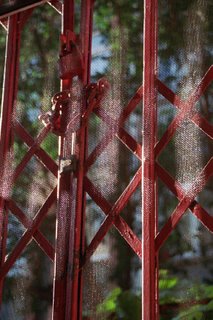 Andrea talks of miracle walks over on her blog. She wrote: These are walks you take with no particular destination, in search of beauty, goodness, a little surprise. The amazing thing about them is that just by declaring them a "miracle walk" you always find something special along the way.
Andrea talks of miracle walks over on her blog. She wrote: These are walks you take with no particular destination, in search of beauty, goodness, a little surprise. The amazing thing about them is that just by declaring them a "miracle walk" you always find something special along the way.In the mood that I've been in these last few days ... that coming-and-going-dark-mood-of-grouchiness since cancelling my flight home ... I held serious doubts about the possibility of this miracle walkthing here in Antwerpen.
I had to go out to Gert's doctor ... paperwork to say he has to stay home some more and while I was out there strangers spoke to me, surprising me with their small kindnesses and I saw one or two beautiful things just because I was looking.
I stopped at a bakery on the way home, giving my order in Nederlands ... asking for een wit brood niet gescheiden en 4 pistolets... mmmm, the 4 pistolets were clear, she pretended not to notice me asking for one white bread not divorced. 'Niet gesneden' for next time.
Anyway ... perhaps it's all about looking beyond the surface of people and place and realising that miracle walks are always a possibility.
Imagine if we'd known ...
I was laughing from the kitchen last night, and said something like 'Imagine if you had said to me back in Istanbul, 'I love you, come live with me and be my love ... although it will mean giving up your job and leaving this exciting city you live in.
And you won't be able to work again until my government is finished with you, and you'll be expected to learn Dutch but don't worry, you can stay home and fill in your spare hours with whatever you like, when not ordering various expensive papers from your country ... and re-ordering them with extra bits that need stamped and translated (again) later.
Oh, and Belgians are notoriously difficult to befriend so it might be a couple of years before you develop a circle of friends like you had in New Zealand and here in Istanbul. And you will have to give up that free trip home if my immigration system can't process you in time because you won't have earned enough to get back to Europe.'
And suddenly we weren't laughing anymore.
And you won't be able to work again until my government is finished with you, and you'll be expected to learn Dutch but don't worry, you can stay home and fill in your spare hours with whatever you like, when not ordering various expensive papers from your country ... and re-ordering them with extra bits that need stamped and translated (again) later.
Oh, and Belgians are notoriously difficult to befriend so it might be a couple of years before you develop a circle of friends like you had in New Zealand and here in Istanbul. And you will have to give up that free trip home if my immigration system can't process you in time because you won't have earned enough to get back to Europe.'
And suddenly we weren't laughing anymore.
Tuesday, May 23, 2006
18 Times the Legal Alcohol Limit
Yahoo was running this story ... Lithuanian police were so astonished by a breath test that registered 18 times the legal alcohol limit, they thought their device must be broken.
It wasn't.
Police said Tuesday 41-year-old Vidmantas Sungaila registered 7.27 grams per liter of alcohol in his blood repeatedly on different devices after he was pulled over Saturday for driving his truck down the center of a two-lane highway 60 miles from the capital, Vilnius.
Medical experts say anything above 3.5 grams per liter of alcohol in the blood is lethal for most people.
It wasn't.
Police said Tuesday 41-year-old Vidmantas Sungaila registered 7.27 grams per liter of alcohol in his blood repeatedly on different devices after he was pulled over Saturday for driving his truck down the center of a two-lane highway 60 miles from the capital, Vilnius.
Medical experts say anything above 3.5 grams per liter of alcohol in the blood is lethal for most people.
Marla Ruzicka, the movie
 I've mentioned Marla Ruzicka more than once on this site and linked to an interesting 'Marla' article over in Rolling Stone magazine.
I've mentioned Marla Ruzicka more than once on this site and linked to an interesting 'Marla' article over in Rolling Stone magazine.The Washington Post recently wrote : "A year ago tomorrow, in Baghdad, a young woman from California was killed by a suicide bomb. Marla Ruzicka was working to get aid to Iraqi civilians harmed by U.S. military operations when her car and that of her colleague Faiz Ali Salim was destroyed on the now-infamous airport road.
Marla's legacy lives on in the countless people continuing her work and in the families she tried so hard to assist. Her help to victims of war should also be enshrined in our policies if we as a country are to be, as Marla put it, "just a little bit better."
The Telegraph is now reporting that the movie rights to her story have been bought by Paramount, who beat off bids from rival studios after the producer Marc Platt, whose previous credits include Philadelphia and Legally Blonde, impressed the Ruzicka family with his enthusiasm for the project.
Project Censored
An interesting site: Project Censored is a media research group out of Sonoma State University which tracks the news published in independent journals and newsletters. From these, Project Censored compiles an annual list of 25 news stories of social significance that have been overlooked, under-reported or self-censored by the country's major national news media.
Kevin Sites
I'm never sure what impresses me more when I read Kevin Sites ... whether it's his endurance, his way of connecting with people, his courage, I don't know but something he wrote struck home with me today.
He's in Nepal being driven through rain heavy enough to dent a car ... the car is a 1971 pre-Nissan thing called a Gista.
Here's an extract from his piece titled 'Nepal: I am a Dog' : When I was traveling in Africa or even the Middle East, the country changes weren't as abrupt to me as they have been in the last six weeks. Like a slow-dissolve connecting the disparate sequences of a continuous story that spans too much geographic territory, I see the roads before me blend from one to the other — riding the river beds of eastern Afghanistan in a humvee, through the lowlands of northern Colombia packed in a local taxi, winding through the hillsides of Haiti in my fixer's beat up Datsun and now to this moment in Nepal.
There is a duality at work here that is hard for me to comprehend. I'm amazed by the these geographic disjunctions in my journey, the shock of sensory overload, the new smells, terrain, and lives that wash over me on these drives.
Simultaneously, I'm lulled by the comfort of it all, the fact that there is too much to understand. Instead of an observer, for this moment, I am a dog with my head out the window, the rush of air creating a comforting buzz that silences the need to know more — at least for now.
He's in Nepal being driven through rain heavy enough to dent a car ... the car is a 1971 pre-Nissan thing called a Gista.
Here's an extract from his piece titled 'Nepal: I am a Dog' : When I was traveling in Africa or even the Middle East, the country changes weren't as abrupt to me as they have been in the last six weeks. Like a slow-dissolve connecting the disparate sequences of a continuous story that spans too much geographic territory, I see the roads before me blend from one to the other — riding the river beds of eastern Afghanistan in a humvee, through the lowlands of northern Colombia packed in a local taxi, winding through the hillsides of Haiti in my fixer's beat up Datsun and now to this moment in Nepal.
There is a duality at work here that is hard for me to comprehend. I'm amazed by the these geographic disjunctions in my journey, the shock of sensory overload, the new smells, terrain, and lives that wash over me on these drives.
Simultaneously, I'm lulled by the comfort of it all, the fact that there is too much to understand. Instead of an observer, for this moment, I am a dog with my head out the window, the rush of air creating a comforting buzz that silences the need to know more — at least for now.
Pulitzer Lessons
An interesting article from Poynter online .
Lessons Learned from Pulitzers 2006:About the Craft, About the Organization. Four Washington Post staffers discuss what their prize-winning work taught them about journalism -- and the place where they work.
Lessons Learned from Pulitzers 2006:About the Craft, About the Organization. Four Washington Post staffers discuss what their prize-winning work taught them about journalism -- and the place where they work.
Monday, May 22, 2006
Loneliness
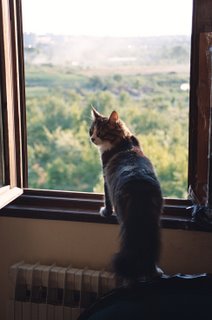 When I first moved to Belgium, it was summer and Gert and I had all the time in the world. We also had a delusion based on research ... that moving countries was a 12 week process in terms of documentation ... maybe 3 months; a long holiday but I had enough money, I could learn the language, find my way around Antwerpen, make the most of this little hiccup in life.
When I first moved to Belgium, it was summer and Gert and I had all the time in the world. We also had a delusion based on research ... that moving countries was a 12 week process in terms of documentation ... maybe 3 months; a long holiday but I had enough money, I could learn the language, find my way around Antwerpen, make the most of this little hiccup in life.That was July 2005 and I'm only now on the downhill side of the 'process'. There's a good chance I'll be operational and ready for business as soon as the Belgians return from their long summer break in September ... there's a chance, nothing definate but a very good chance.
But I wanted to write about loneliness ...
I've never had any problems finding friends. I've always felt lucky that good people found me and pulled me into their lives, or allowed me to arrive in my own ways.
Belgium has been something else.
For the first time in my life I've suffered from real-life loneliness.
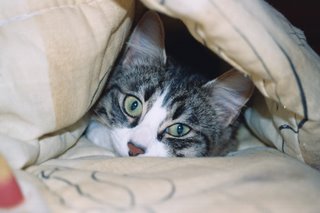 I couldn't work legally and so didn't make those daily connections with new people, building a social group that began with my colleagues.
I couldn't work legally and so didn't make those daily connections with new people, building a social group that began with my colleagues. I had to learn that political receptions are superb places for people-watching, that the language of body is an international language that goes beyond the limits of speech and that most Belgians are very fluent in English but there was also the fact that while people did seem to connect while I was out with them, there was never an 'afterwards'.
I struggled with it. I had never experienced any kind of unlooked for isolation before ... Istanbul friends used to tease me that I knew more people than them, even though they had lived their whole lives in the city, and back in New Zealand no one's a stranger for long.
And so it was that my blog came to life. I created a 'job' and began to write everyday ... just to see if I could. My money ran out as the process of 'immigrant trying to arrive' dragged on. I ran for a while, damaged my knee, stopped while it healed.
Time passed and as the leaves began to reappear on the trees outside my window, I began to wonder if I hadn't had a need for loneliness at this point in my life ... that although it was difficult, I did need to work out what I wanted to do with my life and perhaps more importantly, to begin to get a taste of what is possible when I don't have the distraction of family or friends sharing my life with me ... just for a while.
Lately I've been reading a new blog. Superhero Journal fascinates me to the point where reading it is how I reward myself for achieving my goals for the day.
I was just reading her post titled 'The lonelies' and it made me realise again, just how much I needed to be lonely to get on with pursuing the very thing that has always made me most happy ... this writing-photography thing.
 Andrea was advised to "consider that loneliness is just part of the deal right now. Sometimes you need loneliness to grow creatively".
Andrea was advised to "consider that loneliness is just part of the deal right now. Sometimes you need loneliness to grow creatively". So here I am, still alive, still in Belgium, still unemployable but on the other side of the lonelies. Winter was a long and a cold one but I'm ready to start something new ... so let's see what happens.
Ahhh those Belgian Rules ...
For those who had any doubts about Belgian immigration policy ... who harboured any doubts about my increasing frustrations ... who wondered why a New Zealander might take 7 long months to get a regularisation, based on living with a Belgian ... pop over to the American who is leaving her Brussel's-based partner to his international career after receiving her deportation notice 5 days ago.
I liked the truth of her last sentence ... Immigration is not an issue -- it's lives.
I liked the truth of her last sentence ... Immigration is not an issue -- it's lives.
Ms Baker writes ...
I enjoy the Desperately Wandering blog and often discover new and interesting things when I wander there. Ms Baker's most recent post , titled 'I Am Not A Colour Coded Kuwaiti' presents an interesting point of view.
An extract: It is a democracy when we recognize that the viewpoint in opposition to our own is just as valid and significant for what it represents in terms of freedom of thought, freedom of expression, and it’s ability to generate thoughtful, positive forces for change and the evolution of society. And being a true democracy does not need to mean we surrender who we are ...
An extract: It is a democracy when we recognize that the viewpoint in opposition to our own is just as valid and significant for what it represents in terms of freedom of thought, freedom of expression, and it’s ability to generate thoughtful, positive forces for change and the evolution of society. And being a true democracy does not need to mean we surrender who we are ...
Sunday, May 21, 2006
Blue Eyes
I found this site in Andrea's Superhero Journal .
Blueeyes Magazine is an online documentary photography magazine devoted to publishing new long-term project work. It is a labor of love created by a dedicated group of people who believe in the power of still photography. The magazine was created in 2003 in response to declining editorial space for documentary images, following in the footsteps of the now defunct Untitled Magazine to publish pictures that support and celebrate passionate and personal photography.
Born from a group of friends who studied together at the Missouri School of Journalism, becoming deeply influenced by photographers like Eugene Richards, Gilles Perres, Larry Towell, and Luc Delahaye, the magazine exists to give a home to projects that examine social, political, and environmental issues around the world.
On a more complex level, Blueeyes is a movement against negative trends in photojournalism that have limited the freedom, self-expression, and evolution of documentary photography as a young medium of mass communication. The magazine strives to publish longer, more personal, and more intricate bodies of work, in direct contrast to the traditional models of the newspaper photo story or the over-simplified, stereotypical coverage of broadcast journalism outlets. While many publications, both in print and online, are happy to regurgitate the same pictures from the same photographers ad nauseam, we are trying to champion unpublished and unheralded work from mainly younger photographers. All of this is in a simple effort to understand our selves and our world more clearly.
Blueeyes Magazine is an online documentary photography magazine devoted to publishing new long-term project work. It is a labor of love created by a dedicated group of people who believe in the power of still photography. The magazine was created in 2003 in response to declining editorial space for documentary images, following in the footsteps of the now defunct Untitled Magazine to publish pictures that support and celebrate passionate and personal photography.
Born from a group of friends who studied together at the Missouri School of Journalism, becoming deeply influenced by photographers like Eugene Richards, Gilles Perres, Larry Towell, and Luc Delahaye, the magazine exists to give a home to projects that examine social, political, and environmental issues around the world.
On a more complex level, Blueeyes is a movement against negative trends in photojournalism that have limited the freedom, self-expression, and evolution of documentary photography as a young medium of mass communication. The magazine strives to publish longer, more personal, and more intricate bodies of work, in direct contrast to the traditional models of the newspaper photo story or the over-simplified, stereotypical coverage of broadcast journalism outlets. While many publications, both in print and online, are happy to regurgitate the same pictures from the same photographers ad nauseam, we are trying to champion unpublished and unheralded work from mainly younger photographers. All of this is in a simple effort to understand our selves and our world more clearly.
A Slice of My Day
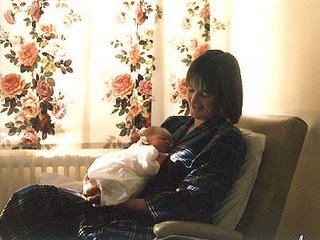 Gert's still not moving far from the couch, as he's suffering from Meuniere Syndrome, an inner ear problem that leaves him with almost constant motion-sickness.
Gert's still not moving far from the couch, as he's suffering from Meuniere Syndrome, an inner ear problem that leaves him with almost constant motion-sickness.I've told him he's very lucky to have his own cheap immigrant labour in-house and meeting most of his needs with minimal (or inaudible) complaint. I have to be careful, too much laughter isn't nice for him, fortunately outrunning him is incredibly simple should I be overcome by the uncharitable demon who makes me mock on occasion.
I woke in tatters, on my feet and running for the phone before my eyes were open. I knew New Zealand was calling ... somehow. It was Jessie, pretending she hadn't realised it was Sunday morning in my world. She runs 10 hours ahead back home in these days.
Although I couldn't see the little 'lie-dimple' that appears on her chin when she's going for an outrageous untruth with an innocent face, there are things that a mother just knows about any child of hers.
Being woken didn't matter, I loved talking with her and the run took me back to the days of her babyhood, when I leapt out of bed and ran when she cried, and leapt out of bed and ran if she slept late.
Me ... neurotic back then?
Maybe.
The New Zealand Alpine Club
The New Zealand Alpine Club recently ran a Creative Writing competition. I'm enjoying reading my way through the entries ... it's a taste of home I guess.
Anyway, just in case anyone else is curious, you can find them here .
The online magazine is full in interesting things ... like Paul Clarke's downloadable pdf titled Mountains of New Zealand. In it, he answers questions like 'how many mountains are there in New Zealand?'
The criteria was that those mountains counted must reach an altitude of 1400 metres or higher and that they are at least 300 metres above the lowest saddle between them and the adjacent 'mountain'.
There are at least 856 mountains in New Zealand; 35 in the North Island and 821 in the South Island.
What can I say ... the South Island always does it better. ;)
Anyway, just in case anyone else is curious, you can find them here .
The online magazine is full in interesting things ... like Paul Clarke's downloadable pdf titled Mountains of New Zealand. In it, he answers questions like 'how many mountains are there in New Zealand?'
The criteria was that those mountains counted must reach an altitude of 1400 metres or higher and that they are at least 300 metres above the lowest saddle between them and the adjacent 'mountain'.
There are at least 856 mountains in New Zealand; 35 in the North Island and 821 in the South Island.
What can I say ... the South Island always does it better. ;)
Saturday, May 20, 2006
Istanbul
Istanbul ... once you adjust to the long summer days, warm nights spent on rooftops overlooking the Marmara Sea ... once you recover from first impact Istanbul, you find you enjoy the Istanbul chaos that changes your life.
 At first you just watch, amazed by the mess as it explodes all around you, you can't stop it, you're a foreigner, so you watch and you learn.
At first you just watch, amazed by the mess as it explodes all around you, you can't stop it, you're a foreigner, so you watch and you learn.
The shower might be a trickle or the water may go off altogether, or the power; the oven might not work but it's okay, you can cook on the stovetop and later, when your belly adjusts, you eat doner sandwiches, borek, and iskender kebap from kind cafe strangers.
But slowly, as you learn to bend with the city, she will reward you with things never dreamt of.
Once I left New Zealand with 30 dollars in my bag, racing a snowstorm to Istanbul airport... 23 hours in the air ... endless hours and a cold sweat whenever the smallprint travel insurance details worried my mind.
I made it... picked up the cat from the vet's, bought extra water and food, I cleaned, I climbed into bed 8 hours after arriving ... a white world outside.
 I climbed into bed almost dead from that tiredness you get when you fly round the world without sleeping and the neighbour started lifting his floor tiles with a drill. His choice of 'snowed-in entertainment' incompatible with his jetlagged Yeni Zelanda neighbour's plan to lie comatose for a few days.
I climbed into bed almost dead from that tiredness you get when you fly round the world without sleeping and the neighbour started lifting his floor tiles with a drill. His choice of 'snowed-in entertainment' incompatible with his jetlagged Yeni Zelanda neighbour's plan to lie comatose for a few days.
2 metres of snow, and I watched it for days, wishing I could have spent longer in my New Zealand summer where everything was so simple after Istanbul.
Another flight back, this time my old home was gone, my new home was yet to be found. People-promises broken ...
 But Istanbul kept her promises ... she was still heaving with people who shouted their way into my quietest moments ... the call to prayer never faltering, going out over the cosmopolitan heads that provide one of one hundred contrasts.
But Istanbul kept her promises ... she was still heaving with people who shouted their way into my quietest moments ... the call to prayer never faltering, going out over the cosmopolitan heads that provide one of one hundred contrasts.
City of scents ... the spices, the fruit wagons, the simit sellers with their sesame sales, diesel-belching buses competing for space in the race that takes place on Istanbul's roads.. yellow taxis. The smell of decay washed away on the Bosphorous; the smell of money when you walk in Nisantasi; the smell of the poor, of the labourers, of the refuse ... the smell.
I adored Istanbul.
 At first you just watch, amazed by the mess as it explodes all around you, you can't stop it, you're a foreigner, so you watch and you learn.
At first you just watch, amazed by the mess as it explodes all around you, you can't stop it, you're a foreigner, so you watch and you learn. The shower might be a trickle or the water may go off altogether, or the power; the oven might not work but it's okay, you can cook on the stovetop and later, when your belly adjusts, you eat doner sandwiches, borek, and iskender kebap from kind cafe strangers.
But slowly, as you learn to bend with the city, she will reward you with things never dreamt of.
Once I left New Zealand with 30 dollars in my bag, racing a snowstorm to Istanbul airport... 23 hours in the air ... endless hours and a cold sweat whenever the smallprint travel insurance details worried my mind.
I made it... picked up the cat from the vet's, bought extra water and food, I cleaned, I climbed into bed 8 hours after arriving ... a white world outside.
 I climbed into bed almost dead from that tiredness you get when you fly round the world without sleeping and the neighbour started lifting his floor tiles with a drill. His choice of 'snowed-in entertainment' incompatible with his jetlagged Yeni Zelanda neighbour's plan to lie comatose for a few days.
I climbed into bed almost dead from that tiredness you get when you fly round the world without sleeping and the neighbour started lifting his floor tiles with a drill. His choice of 'snowed-in entertainment' incompatible with his jetlagged Yeni Zelanda neighbour's plan to lie comatose for a few days.2 metres of snow, and I watched it for days, wishing I could have spent longer in my New Zealand summer where everything was so simple after Istanbul.
Another flight back, this time my old home was gone, my new home was yet to be found. People-promises broken ...
 But Istanbul kept her promises ... she was still heaving with people who shouted their way into my quietest moments ... the call to prayer never faltering, going out over the cosmopolitan heads that provide one of one hundred contrasts.
But Istanbul kept her promises ... she was still heaving with people who shouted their way into my quietest moments ... the call to prayer never faltering, going out over the cosmopolitan heads that provide one of one hundred contrasts.City of scents ... the spices, the fruit wagons, the simit sellers with their sesame sales, diesel-belching buses competing for space in the race that takes place on Istanbul's roads.. yellow taxis. The smell of decay washed away on the Bosphorous; the smell of money when you walk in Nisantasi; the smell of the poor, of the labourers, of the refuse ... the smell.
I adored Istanbul.
The World's Most Inflential Columnists.
Antwerpen's doing Autumn today .. rain showers of varying intensities, thunderstorms that roll over and out, wind, and sunshine in between, and so I was web-wandering when I found interesting things over on Erkan's site.
He wrote that Financial Times.com has compiled a 'most influential commentator' list ...
It offers some surprises ... although Thomas Friedman isn't considered America's most influential, he is 'the most read' by India's ruling elite.
He wrote that Financial Times.com has compiled a 'most influential commentator' list ...
It offers some surprises ... although Thomas Friedman isn't considered America's most influential, he is 'the most read' by India's ruling elite.
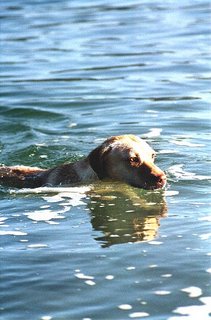 "The need for change
"The need for changebulldozed a road down
the center of my mind."
Maya Angelou
I loved this ... sometimes the only way for us to step out and make changes is for our known world to collapse and fall in on itself.
Finding quotes about change, about growth, about movement have always crashed their way into my mind ... I ignored them for a long time ... small pieces like: 'The shell must break before the bird can fly'.
Tennyson
'We take these risk not to escape life but to prevent life escaping us.'
Unknown.
And 'No se puede nadar y guardar la ropa' is a favourite of mine, useful when I get sad for the books and small things I left back home in New Zealand ... translation: 'You can't go swimming and look after your clothes'.
I'd rather swim ...
Benjamin Franklin said ...
Perhaps the history of the errors of mankind, all things considered, is more valuable and interesting than that of their discoveries. Truth is uniform and narrow; it constantly exists, and does not seem to require so much an active energy, as a passive aptitude of the soul in order to encounter it. But error is endlessly diversified; it has no reality, but is the pure and simple creation of the mind that invents it. In this field the soul has room enough to expand herself, to display all her boundless faculties, and all her beautiful and interesting extravagancies and absurdities.
Benjamin Franklin
from his report to the King of France on Animal Magnetism, 1784
Lifted from Caterina's blog.
Benjamin Franklin
from his report to the King of France on Animal Magnetism, 1784
Lifted from Caterina's blog.
Friday, May 19, 2006
Water Play, Summertime
Superhero Journal and other sites ...
"If your work isn't your dream or leading to your dream, quit sooner rather than later."
Sark
I was web-wandering earlier and stumbled upon a blog new to me called Superhero Journal .
I'm not even sure about how I arrived there because I immediately began exploring the site and lost myself in pages opened and links followed.
The opening quote appeared in the Superhero Journal but was a quote by Sark, and so it goes that I had to explore Sark's site too.
There are some lovely things on the web.
Postscript ...(hmmm or is that 'note to self'?) ... anyway, Danny Gregory's site is kind of delicious too.
And ... one more, she writes yet again in 'edit posts'. Stunning photographs to be found at chromasia .
Sark
I was web-wandering earlier and stumbled upon a blog new to me called Superhero Journal .
I'm not even sure about how I arrived there because I immediately began exploring the site and lost myself in pages opened and links followed.
The opening quote appeared in the Superhero Journal but was a quote by Sark, and so it goes that I had to explore Sark's site too.
There are some lovely things on the web.
Postscript ...(hmmm or is that 'note to self'?) ... anyway, Danny Gregory's site is kind of delicious too.
And ... one more, she writes yet again in 'edit posts'. Stunning photographs to be found at chromasia .
Myrtle Shoupe
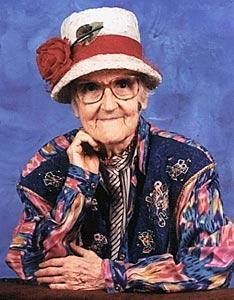 This article was kind of quirky ...
This article was kind of quirky ... Myrtle Shoupe even had her own website: Myrtle is an exuberant 95-year-old columnist for the weekly Manchester Enterprise, published in the rugged, remote coal country of Eastern Kentucky. Myrtle began writing about the tiny community of Hima for The Enterprise in 1954, and over the years her column has become a favorite of readers far and wide.
In terms of topics, not to mention syntax, Myrtle is inspired by her verry own personal muse. Since 1956, The Enterprise has run a notice assuring readers the Hima News is indeed "Printed As Written." It seems that Myrtle balked when the editors attempted to clean up the column. When everyone in Manchester, even the mayor, rose up in Myrtle's defense, the newspaper backed down, but it made sure its readers knew that the voice they were reading is Mrs. Shoupe’s alone..
How much do you know about Turkey?
About Blogs ...
The Christian Science Monitor writes: As it happens, blogs are showing up faster than ants at a summer picnic. There are some 37 million blogs in the world, with a new blog created every second, according to a report by David Sifry, founder of Technorati, a website that tracks blogs and blog use. Since Mr. Sifry released his report May 1, the number of blogs tracked by the site has climbed to 39.6 million as of this past weekend.
Thanks Erkan.
Thanks Erkan.
So Is Germany Racist?
Der Spiegel is never afraid of the tough stories: Two days after a former government spokesman caused a furor in Germany by saying out loud what most Germans believe in private -- that non-white World Cup fans should probably keep out of certain provincial towns -- the debate is still on German minds. "There are small and medium-sized towns in (the eastern state of) Brandenburg, as well as elsewhere, which I would advise a visitor of another skin color to avoid going to," Uwe-Karsten Heye said on Wednesday in an interview on German public radio. "It is possible he wouldn't get out alive."
Kevin Sites on Yubaraj Khakada's Nepalese Life
Kevin Sites is reporting from Nepal these days ... showing a side to the city that I hadn't considered.
Fourteen-year-old Yubaraj works around the clock parking cars in Katmandu. For his family it's survival - for him, a kind of suicide by exhaust fumes. "I start at 10 a.m. and I usually have to work until 10 p.m. to make the 820," he says. "Then I can start earning for myself."
Yubaraj says he makes about 2,500 rupees a month, about $33, but sends two-thirds of it back to his family. The rest he uses to pay for a small room in a hotel where he lives with a couple of older boys.
He washes his own clothes and usually eats two meals a day of rice, beans and curry at the hotel.
"At first, I used to get lonely," he says, "but now I'm used to it."
Fourteen-year-old Yubaraj works around the clock parking cars in Katmandu. For his family it's survival - for him, a kind of suicide by exhaust fumes. "I start at 10 a.m. and I usually have to work until 10 p.m. to make the 820," he says. "Then I can start earning for myself."
Yubaraj says he makes about 2,500 rupees a month, about $33, but sends two-thirds of it back to his family. The rest he uses to pay for a small room in a hotel where he lives with a couple of older boys.
He washes his own clothes and usually eats two meals a day of rice, beans and curry at the hotel.
"At first, I used to get lonely," he says, "but now I'm used to it."
Thursday, May 18, 2006
Wandering ...
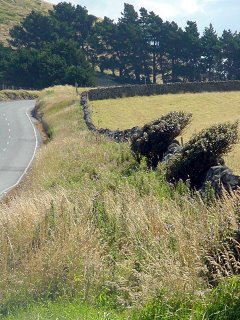 Sometimes I have to wander to find myself, and when I'm not free to wander I have to read ... searching I guess, for some thing to hold or interest me, to allow movement of another kind.
Sometimes I have to wander to find myself, and when I'm not free to wander I have to read ... searching I guess, for some thing to hold or interest me, to allow movement of another kind.I love a journey, be it real or imagined; mine or belonging to someone else.
Dan Eldon made sense when he wrote 'The journey is the destination' and he lived his life accordingly.
In 'The Great Arc', Carrithers wrote, 'The first moral is that human life is 'metamorphic'. 'Metamorphic' here is a term of art meant to capture the incessant mutability of human experience, the temporality woven into all human institutions and relationships.'
But that's not how we're encouraged to live ...
Rita Golden Gelman became another I admire when she went wandering: I am a modern-day nomad. I have no permanent address, no possessions except the ones I carry, and I rarely know where I’ll be six months from now. I move through the world without a plan, guided by instinct, connecting through trust, and constantly watching for serendipitous opportunities.
Her book, Tales of a Female Nomad, is one I've often recommended since first reading it back home in New Zealand ... in those days when my acts of nomadism were limited to how far my car would take me.
Robert Burton, in The Anatomy of Melancholy, devoted an immense amount of time and scholarship to showing that travel was not a curse but a cure for melancholy; that is, for the depressions brought on by settlement: 'The heavens themselves turn continually, the sun rises and sets, the moon grows bigger, stars and planets keep their constant motions, the air is tossed by the winds, waters ebb and flow ... teaching us that we should ever be in motion.
He who does not travel does not know the value of men ...
A Moorish proverb.
Erica Jong
Erica Jong has long been one of my favourite writers ...
What You Need to Be A Writer
After the college
reading,
the eager
students gather.
They ask me
what you need
to be a writer
& I, feeling flippant,
jaunty
(because
I am wearing
an 18th century
dress
& think
myself in love
again),
answer:
"Mazel,
determination,
talent, & true
grit."
I even
believe it--
looking
as I do
like an
advertisement
for easy
success--
designer dress,
sly smile
on my lips
& silver boots
from
Oz.
Suppose
they saw me
my eyes
swollen
like sponges,
my hand
shaking
with betrayal,
my fear
rampant
in the dark?
Suppose they saw
the fear
of never
writing,
the fear
of being
alone,
the money fear,
the fear fear,
the fear
of succumbing
to fear?
& then there's all
I did
not say:
to be
a writer
what you need
is
something
to say:
something
that burns
like a hot coal
in your gut
something
that pounds
like a pump
in your groin
& the courage
to love
like a wound
that never
heals.
What You Need to Be A Writer
After the college
reading,
the eager
students gather.
They ask me
what you need
to be a writer
& I, feeling flippant,
jaunty
(because
I am wearing
an 18th century
dress
& think
myself in love
again),
answer:
"Mazel,
determination,
talent, & true
grit."
I even
believe it--
looking
as I do
like an
advertisement
for easy
success--
designer dress,
sly smile
on my lips
& silver boots
from
Oz.
Suppose
they saw me
my eyes
swollen
like sponges,
my hand
shaking
with betrayal,
my fear
rampant
in the dark?
Suppose they saw
the fear
of never
writing,
the fear
of being
alone,
the money fear,
the fear fear,
the fear
of succumbing
to fear?
& then there's all
I did
not say:
to be
a writer
what you need
is
something
to say:
something
that burns
like a hot coal
in your gut
something
that pounds
like a pump
in your groin
& the courage
to love
like a wound
that never
heals.
Der Spiegel and Henry Mafarna
"I've got just two options," he said. "I'll either make it to Europe or die trying."
Henry Mafarna
"Even if I have to live on the streets in Europe, even if people there look down on me, it can't be any worse than here," Henry says. When night begins to fall, he proposes a bet. He asks me to give him my e-mail address. "I'll write to you from Spain," he says grinning, "and then you have to come and visit."
So far, he hasn't written.
Henry Mafarna
"Even if I have to live on the streets in Europe, even if people there look down on me, it can't be any worse than here," Henry says. When night begins to fall, he proposes a bet. He asks me to give him my e-mail address. "I'll write to you from Spain," he says grinning, "and then you have to come and visit."
So far, he hasn't written.
Kudsi Erguner, Musical Archaeologist
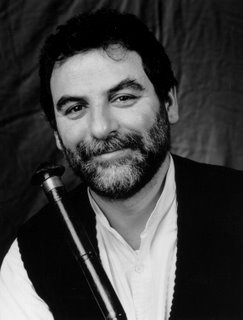 Sometimes you follow a small trail and find something truly delicious ...
Sometimes you follow a small trail and find something truly delicious ...I was reading through my July 2005 copy of the Turkish Airlines magazine called 'Skylife' when I found a feature article on Kudsi Erguner.
I read of a man who studied both architecture and musicological research in Paris, who writes books, composes music and teaches.
Curious to know more, I searched for his music online and loved the two pieces I found ... Ney Taksimi and Ud Ve Kanun Ta.
He has some 92 albums to his name and is regarded as one of the world's leading representatives of sufi music. Yet to be searched are the compositions he has created while researching classical Turkish music, mixing Ottoman music with western rhythms and improvisational jazz.
Kudsi 'expresses mystical philosophy through his 'ney' (reed flute), an instrument he learned while following in the ney playing footsteps of his father and grandfather.
France gets more than it seems to deserve in these days when he talks of the multi-cultural aspect of his projects. He says, 'Let's say it's a spinoff of living in Paris. Because Paris is a world city; you meet a lot of artists there.'
He has a book ... 'The Fount of Seperation: A Ney Player's Journey'. It's intended to be autobiographical but is more of a first-hand account of the period in which my generation lived.
I woke in a dark mood, I was sure it was my mood for a week ... my only plan for the day was cancelling my flight home for the last time but then things changed. It seems I lack the depth required to maintain a good long sulk.
Wandering woman in Spain made me laugh ... not once but twice, and Cindy's threatened deportation from Belgium made me remember that there are so many worse off than me.
So I moved on, will delete my sad and grouchy cancelled ticket post and will post news of Flat Stephanie's school visit over on my other site.
Oh yes, I have a heavy schedule of Steph-type appointments in the days ahead of me ... what more can a girl ask for? ;)
Wandering woman in Spain made me laugh ... not once but twice, and Cindy's threatened deportation from Belgium made me remember that there are so many worse off than me.
So I moved on, will delete my sad and grouchy cancelled ticket post and will post news of Flat Stephanie's school visit over on my other site.
Oh yes, I have a heavy schedule of Steph-type appointments in the days ahead of me ... what more can a girl ask for? ;)
New Zealand and Immigration
Hmmm do unto others as you would have done unto yourself...
I don't imagine politicians and lawmakers are the type to immigrate to other countries, I guess this is fortunate because they surely wouldn't enjoy the experience.
In the interests of being balanced in the presentation of immigration woes, I should offer up any other piece of foolishness that catches my eye ...
Australia welcomes Danish musician snubbed by NZ migrant rules
By Angela Gregory
Two of his biggest fans are Denmark's Prime Minister and the Crown Prince but Danish musician Michael Hardinger will be making a new life in Australia because he cannot get a work permit to come to New Zealand.
About five years ago Hardinger had wanted to emigrate to New Zealand from his base in Los Angeles where he writes film scores.
He loves New Zealand, which he has visited many times, and had hoped to build a recording studio and later retire with a bed and breakfast business in the Bay of Islands.
But Hardinger quickly learned he was not eligible for entry under the New Zealand talents policy and could not meet the steep financial requirements of the investor category.
"I gave up on New Zealand because there was no category there that would accept me."
Those with exceptional talent in a declared field of arts, culture or sport can get a work visa or permit but they have to be sponsored by a nationally reputed New Zealand organisation and be 55 or under.
Hardinger was 53 at the time he considered moving to New Zealand but did not have a sponsor. He is now moving with his wife and child to Australia in July under a similar talent visa scheme.
In his application to Australian immigration Hardinger supplied personal recommendations from Denmark's Prime Minister and Crown Prince, who were fans of the commercially successful Danish rock band Shu-bi-dua in which he played guitar and keyboards.
He has solo recordings with sales of more than six million and has written five film scores.
A bow to those who make rules in New Zealand ...
I don't imagine politicians and lawmakers are the type to immigrate to other countries, I guess this is fortunate because they surely wouldn't enjoy the experience.
In the interests of being balanced in the presentation of immigration woes, I should offer up any other piece of foolishness that catches my eye ...
Australia welcomes Danish musician snubbed by NZ migrant rules
By Angela Gregory
Two of his biggest fans are Denmark's Prime Minister and the Crown Prince but Danish musician Michael Hardinger will be making a new life in Australia because he cannot get a work permit to come to New Zealand.
About five years ago Hardinger had wanted to emigrate to New Zealand from his base in Los Angeles where he writes film scores.
He loves New Zealand, which he has visited many times, and had hoped to build a recording studio and later retire with a bed and breakfast business in the Bay of Islands.
But Hardinger quickly learned he was not eligible for entry under the New Zealand talents policy and could not meet the steep financial requirements of the investor category.
"I gave up on New Zealand because there was no category there that would accept me."
Those with exceptional talent in a declared field of arts, culture or sport can get a work visa or permit but they have to be sponsored by a nationally reputed New Zealand organisation and be 55 or under.
Hardinger was 53 at the time he considered moving to New Zealand but did not have a sponsor. He is now moving with his wife and child to Australia in July under a similar talent visa scheme.
In his application to Australian immigration Hardinger supplied personal recommendations from Denmark's Prime Minister and Crown Prince, who were fans of the commercially successful Danish rock band Shu-bi-dua in which he played guitar and keyboards.
He has solo recordings with sales of more than six million and has written five film scores.
A bow to those who make rules in New Zealand ...
Wednesday, May 17, 2006
Antwerp, City of Diamond Traders
Der Spiegel have an interesting article on the changing situation amongst the diamond traders of Antwerp.
The Belgian city of Antwerp has the largest diamond market in the world. Orthodox Jews controlled the trade for centuries, but now globalization has seen them displaced by dealers hailing from India.
... The High Diamond Council, the trade's main governing body, has only recently caught up with the times. Earlier this month Indians won five of the six elected seats on the 11-member board. Indians already account for €15 billion ($19 billion) of the annual diamond trade of a total of €23 billion.
While competition between them is harsh, the Jews and the Indians -- most of them belonging to the Jain faith -- have a friendly, neighborlike relationship. There are even some Jewish-Indian married couples in Antwerp. "Judaism and our Jainisim have a number of similarities," diamond dealer Ramesh Mehta explains. Like Jews, he says followers of Jainism are used to working hard and they reject every form of violence.
The Belgian city of Antwerp has the largest diamond market in the world. Orthodox Jews controlled the trade for centuries, but now globalization has seen them displaced by dealers hailing from India.
... The High Diamond Council, the trade's main governing body, has only recently caught up with the times. Earlier this month Indians won five of the six elected seats on the 11-member board. Indians already account for €15 billion ($19 billion) of the annual diamond trade of a total of €23 billion.
While competition between them is harsh, the Jews and the Indians -- most of them belonging to the Jain faith -- have a friendly, neighborlike relationship. There are even some Jewish-Indian married couples in Antwerp. "Judaism and our Jainisim have a number of similarities," diamond dealer Ramesh Mehta explains. Like Jews, he says followers of Jainism are used to working hard and they reject every form of violence.
Belgium and its process of residency
It's not that I'm forming an overall bad impression of Belgium but this story is kind of cruel and ridiculous as the immigrant in question is here with her husband and still in process, with assistance from a relocation expert ... clearly not even a relocation expert can stand against the tsunami that is residency paperwork.
Cindy is an American expat living in Brussels and today she was spoken to by the Belgian police.
The story: Today, a police inspector informed me that I have 5 days to leave the country. Yes, you read that right. D-E-P-O-R-T-E-D. I was handed an "Ordre de Quitter le Territoire" and was told "you must leave Belgium." Since I don't speak or read French, I have no idea what is going on.
Cindy is an American expat living in Brussels and today she was spoken to by the Belgian police.
The story: Today, a police inspector informed me that I have 5 days to leave the country. Yes, you read that right. D-E-P-O-R-T-E-D. I was handed an "Ordre de Quitter le Territoire" and was told "you must leave Belgium." Since I don't speak or read French, I have no idea what is going on.
A slice of my day
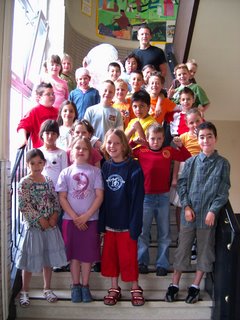 Events are conspiring to break into my self-imposed 'I'm working and need to concentrate' state.
Events are conspiring to break into my self-imposed 'I'm working and need to concentrate' state.Flat Stephanie requires exercise of the interactive type and so it was that this morning we popped over to Marco's third grade class with our flat American guest. I was looking forward to it, curious about Belgian schools after two years spent teaching in the Turkish private school system.
Oddly enough, I discovered I had less interest in the process of education and discovered a certain relief in being out of it all, as in ... 'Did you see how demanding that class was?' The students were lovely but I was happy to be on the guest side of the experience ... admiring what it takes to teach 22 short people and keep them in order as opposed to doing the ordering.
Meanwhile, Gert is home with an inner ear infection which translates to an almost permanent state of motion-sickness. I envy him not. Anything that involves not being able to read ... neither computer screen nor printed page, gives me the horrors, although I may have taken my sympathy too far ... staking out the other couch, the one in the sun, and sleeping the entire afternoon away.
Note to Self .... an interesting site
Erkan posted news on this UN site
2006 LIST OF '10 STORIES THE WORLD SHOULD HEAR MORE ABOUT'
Concerned that some issues continue not to receive sustained media attention or slip off the radar screen, the United Nations Department of Public Information (DPI) has unveiled a new list of "Ten Stories the World Should Hear More About."
"The media and the UN share an interest in getting information about what is happening in our world to the public," says Shashi Tharoor, Under-Secretary-General for Communications and Public Information. "But journalists are often inundated with stories, all competing for their -- and the public's -- attention. Our aim is to make it easier for them to see that important issues do not fade from the headlines."
The initiative, first launched in 2004, is not meant to be representative of the Organization's agenda. As in previous years, the 2006 list covers a spectrum of issues and geographical regions, some of which draw on troubling humanitarian emergencies and conflict situations (such as the Democratic Republic of Congo and Nepal) while others focus on such vital areas as human rights (asylum law and child prisoners) and development (Liberia and water as a shared resource).
While the stories are enumerated from one to ten, their ranking is not a reflection of their relative significance. In this year's list, some stories focus on conflicts that may have been in the media spotlight - but highlight a perspective that does not usually get much play. Although DPI takes responsibility for the final list, it was arrived at following extensive consultation with UN departments, field offices and programmes.
2006 LIST OF '10 STORIES THE WORLD SHOULD HEAR MORE ABOUT'
Concerned that some issues continue not to receive sustained media attention or slip off the radar screen, the United Nations Department of Public Information (DPI) has unveiled a new list of "Ten Stories the World Should Hear More About."
"The media and the UN share an interest in getting information about what is happening in our world to the public," says Shashi Tharoor, Under-Secretary-General for Communications and Public Information. "But journalists are often inundated with stories, all competing for their -- and the public's -- attention. Our aim is to make it easier for them to see that important issues do not fade from the headlines."
The initiative, first launched in 2004, is not meant to be representative of the Organization's agenda. As in previous years, the 2006 list covers a spectrum of issues and geographical regions, some of which draw on troubling humanitarian emergencies and conflict situations (such as the Democratic Republic of Congo and Nepal) while others focus on such vital areas as human rights (asylum law and child prisoners) and development (Liberia and water as a shared resource).
While the stories are enumerated from one to ten, their ranking is not a reflection of their relative significance. In this year's list, some stories focus on conflicts that may have been in the media spotlight - but highlight a perspective that does not usually get much play. Although DPI takes responsibility for the final list, it was arrived at following extensive consultation with UN departments, field offices and programmes.
cafebabel.com
I knew I had found a good site, I just didn't realise quite how good and there seems to be so much more to excavate and explore on cafebabel.com
Their 'about' reads like this: Welcome to cafebabel.com, the first multilingual European current affairs magazine, designed for readers across borders. Cafebabel.com revolutionises European media through participatory journalism, providing a unique platform of expression for all citizens.
Café babel’s aim is to stimulate and develop European public opinion through two distinct but closely related missions. The online magazine – cafebabel.com – offers every week analyses of current affairs from a unique, European perspective. Secondly, at grassroots level café babel’s network, actively promotes this perspective through debates, conferences and other events organised in towns and cities across Europe.
Promises are kept when you go wandering and find yourself reading the autumn interviews with TV presenter Nikolina Dimitrova, film director Cédric Klapisch, ex-monk Thich Tri Luc, cultural attaché German Reyes and world federalist Lucio Levi enjoy brunch with café babel this autumn.
Their 'about' reads like this: Welcome to cafebabel.com, the first multilingual European current affairs magazine, designed for readers across borders. Cafebabel.com revolutionises European media through participatory journalism, providing a unique platform of expression for all citizens.
Café babel’s aim is to stimulate and develop European public opinion through two distinct but closely related missions. The online magazine – cafebabel.com – offers every week analyses of current affairs from a unique, European perspective. Secondly, at grassroots level café babel’s network, actively promotes this perspective through debates, conferences and other events organised in towns and cities across Europe.
Promises are kept when you go wandering and find yourself reading the autumn interviews with TV presenter Nikolina Dimitrova, film director Cédric Klapisch, ex-monk Thich Tri Luc, cultural attaché German Reyes and world federalist Lucio Levi enjoy brunch with café babel this autumn.
Tuesday, May 16, 2006
Mark Inglis, New Zealand Mountaineer
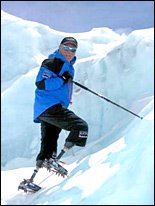 Mark Inglis has fulfilled his lifelong dream.
Mark Inglis has fulfilled his lifelong dream. By Derek Cheng and NZPA
Sir Edmund Hillary has joined the Prime Minister in praising the achievement of New Zealand climber Mark Inglis who last night became the first double amputee to conquer Mt Everest.
And Sir Edmund, who first conquered Everest, on May 29, 1953 with Sherpa Tenzing Norgay, added his praise.
He told the Sydney Morning Herald it was "quite obviously a remarkable effort to actually climb Mt Everest with a couple of artificial legs".
He added: "And I have to admit that I admire his considerable effort ... he's done a pretty good job."
Mr Inglis' wife Anne confirmed her husband's achievement yesterday as she spoke to him briefly after he stood atop the 8850m mountain.
"He's incredible," Mrs Inglis said. "He's dreamed of this all his life, probably. He's over the moon.
"They didn't expect to be this early, they thought maybe mid to late May, so Mark will be stoked. I imagine they'll be having a few whiskies."
Inglis conquered Everest on two carbon-fibre artificial legs especially adapted for climbing.
He snapped one of them when he was at about 6400m while preparing to move up to Camp 2, which is at about 7500m.
He was able to fix it well enough to get to his climbing companions, and then rebuilt it with spare parts.
Helen Clark (New Zealand's Prime Minister) said today: "As a very amateur climber myself with two sound legs and having got to 6000m I can appreciate what an amazing achievement this is and I offer him my full congratulations."
And yahoo reported : Inglis was a mountain rescue guide when he and fellow climber Phil Doole had both legs amputated below the knee after suffering frostbite in 1982 when trapped in an ice cave for 14 days on Mount Cook, New Zealand's highest peak.
Since then, Inglis has taken on a number of challenges and succeeded -- ranging from legless mountaineer and ski guide to research scientist after earning an honours degree in human biochemistry. He is also a leading winemaker and cycling silver medallist at the Sydney Paralmypics.
Before leaving on his Everest expedition, Inglis told AFP the fact that he had lost both legs, and no one has ever scaled the world's highest peak with two artificial limbs, was of secondary importance.
"I'm not doing this to be the first double amputee -- if I am then it's the icing on the cake -- but it's more about I've been climbing most of my life and Everest is the achievement really.
"And it gives you the knowledge of empowerment to do other things."
Poetry as a cure for homesickness
Sometimes I have a need for New Zealand poetry or writing ... it takes me home.
I spoke with my niece Katie yesterday.
(If time passes while I'm not there, do the children really grow older?)
She wanted to know when I was coming home.
How do you explain to a child that you need to earn a multitude of permissions, fill out papers and pay strangers for signatures to 'enter' the country you've moved to; that the icing on the cake known as immigration is permission to work and earn money ... and that it's only then that you can fly home for a while.
Anyway, the poetry ...
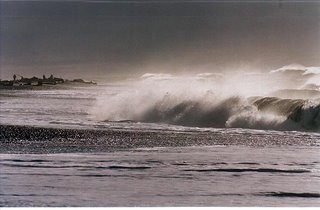 Before and After
Before and After
Before New Zealand
I did not know:
— that pigs have teeth
— that abalone has another name
— that there is a gumboot capital of the world
— that distance is a cruel deception
After New Zealand
I know:
— how to return a stranger's smile
— how to wrap my tongue around every syllable
— how to not be anonymous
— how to be a foreigner
Thanks Harvey
I spoke with my niece Katie yesterday.
(If time passes while I'm not there, do the children really grow older?)
She wanted to know when I was coming home.
How do you explain to a child that you need to earn a multitude of permissions, fill out papers and pay strangers for signatures to 'enter' the country you've moved to; that the icing on the cake known as immigration is permission to work and earn money ... and that it's only then that you can fly home for a while.
Anyway, the poetry ...
 Before and After
Before and After Before New Zealand
I did not know:
— that pigs have teeth
— that abalone has another name
— that there is a gumboot capital of the world
— that distance is a cruel deception
After New Zealand
I know:
— how to return a stranger's smile
— how to wrap my tongue around every syllable
— how to not be anonymous
— how to be a foreigner
Thanks Harvey
Monday, May 15, 2006
The Belgian Debate
And so the debate begins here in Belgium ... can the extreme right parties be held accountable for creating a climate of racism that led to the brutal shooting of 3 people last week.
Ask the immigrants...
I'm an immigrant and my blood pressure goes through the ceiling whenever another of their 'newspapers' appear uninvited in the letterbox.
Pam illustrates with her American self experiencing Austria's extreme right politics in the local newspaper ....
In a brief history, the other Belgian political parties had placed a cordon sanitaire around the extreme right party operating here, refusing to work with or support their extreme right politics in any way ... but the extreme right won 30% of the vote here in Antwerp in the last elections.
Freedom of speech is highly valued here in Belgium and when vlaams belang cross the line of law, they change their name and re-form.
The family of the young girl killed were shocked by the message of sympathy offered by the extreme-right Flemish Interest. The grandmother wrote a letter to regional Antwerp TV broadcaster ATV stressing the family does not want any condolences from the Flemish Interest party.
And so it goes on.
Ask the immigrants...
I'm an immigrant and my blood pressure goes through the ceiling whenever another of their 'newspapers' appear uninvited in the letterbox.
Pam illustrates with her American self experiencing Austria's extreme right politics in the local newspaper ....
In a brief history, the other Belgian political parties had placed a cordon sanitaire around the extreme right party operating here, refusing to work with or support their extreme right politics in any way ... but the extreme right won 30% of the vote here in Antwerp in the last elections.
Freedom of speech is highly valued here in Belgium and when vlaams belang cross the line of law, they change their name and re-form.
The family of the young girl killed were shocked by the message of sympathy offered by the extreme-right Flemish Interest. The grandmother wrote a letter to regional Antwerp TV broadcaster ATV stressing the family does not want any condolences from the Flemish Interest party.
And so it goes on.
The 41st Cat Parade, Ieper (Ypres)
 Yesterday the Canucks came over to Antwerpen and spirited us off to the Ypres (Ieper) Cat Festival.
Yesterday the Canucks came over to Antwerpen and spirited us off to the Ypres (Ieper) Cat Festival.Cat Festival you might wonder ...
Well I recently wrote of Ieper's cats but to recap: in the past, on the last day of the Annual Market in Ieper's Grote Markt there would be an excess of cats ... attracted by the mice attracted by the Market produce. Someone came up with the idea that the city jester should throw these excess cats to their death from the tower. Another story circulating says that Ieper burned its witches then threw their black cats from the bellfry ...
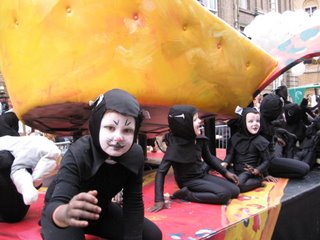 Whatever the truth is, it was a bloodthirsty practice that came to an end back in 1817 and the Cat Festival rose up out of the ashes, complete with the long parade. It should be noted that belltowers and a present day jester throwing toy cats from the belfry also feature in this special day; one that ends with the burning of witches ...
Whatever the truth is, it was a bloodthirsty practice that came to an end back in 1817 and the Cat Festival rose up out of the ashes, complete with the long parade. It should be noted that belltowers and a present day jester throwing toy cats from the belfry also feature in this special day; one that ends with the burning of witches ... The parade began with the business procession which was better than expected after viewing the many work vehicles lined up at parade headquarters. The businesses handed out sweets and had woven brass bands and cat-like kids in the spaces between the big trucks and new cars.
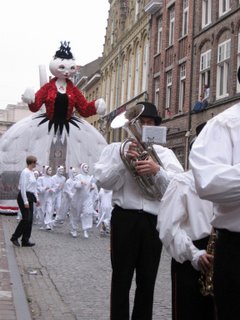 'Cats' rode 4-wheel motorbikes on 2 wheels, men breathed fire, a town cryer rode by on his horse advertising the witch burning and every now and again I turned my Canon EOS on the Belgians framed by their picturesque windows in the homes and businesses that lined the street of the festival ... to be developed at some later point. Meanwhile Gert took some good digital photographs so I'll illustrate using them.
'Cats' rode 4-wheel motorbikes on 2 wheels, men breathed fire, a town cryer rode by on his horse advertising the witch burning and every now and again I turned my Canon EOS on the Belgians framed by their picturesque windows in the homes and businesses that lined the street of the festival ... to be developed at some later point. Meanwhile Gert took some good digital photographs so I'll illustrate using them.The giants were there ... but of course, this is Belgium and every village and city has it's own history of giants. To quote from a knowing source: The traditional procession of giants encompasses an original ensemble of festive rituals. The event essentially consists of a procession of huge effigies of giants and animals within the scope of popular manifestations and ritual representations.
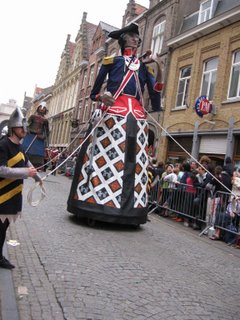 These cultural expressions first appeared in the urban religious processions of sixteenth century western Europe and today still are emblems and provide a sense of identity to certain Belgian towns where they remain living traditions.
These cultural expressions first appeared in the urban religious processions of sixteenth century western Europe and today still are emblems and provide a sense of identity to certain Belgian towns where they remain living traditions. These giants are large-scale models measuring up to nine metres in height and weighing up to 350 kilos. They represent mythical heroes or animals, historical or legendary characters. Each expression follows a precise ritual and the giant is often related to the history, legend or life of the town.
Tot ziens ...
Kim Hill, Being German, and National Radio, New Zealand ...
 When I left New Zealand I gave up many things ... National Radio was one of those things. Last year a wistful online search offered up New Zealand National Radio on line. Not only that, they had archives.
When I left New Zealand I gave up many things ... National Radio was one of those things. Last year a wistful online search offered up New Zealand National Radio on line. Not only that, they had archives.Kim Hill has been New Zealand's queen of interviews for some years and I discovered that they store her Saturday morning show online for a month.
This morning I read an email from an old friend and he mentioned one of Kim's more recent interviews ... Was listening to your beloved Kim the other day on National Radio - she was interviewing an ex-pat kiwi (Joanne Moar) who has lived in Germany for the past 11 years. She's been trying to gain permanent residency all that time and still hasn't managed it despite jumping through all their hoops. (Sounds like German bureaucracy is even more impressive than the Belgian equivalent)
One thing she has found annoying is that she doesn't blend in to her adopted country (even though she speaks flawless German) because she doesn't have a German childhood - when she's with her German mates and they're all laughing about a book they had to read at school, comparing where they went for their summer holidays, singing their favourite childhood songs, or swapping tales about the experiences their grandparents had in the war etc etc.
She feels on the outside despite feeling totally German in pretty much all other respects. So she's developed a website where you can download a German childhood complete with all those memories you'd expect.
At Becoming German you can either donate your own memories if you grew up in Germany or download one if you're an import. You just enter your details age, gender, interests, etc and the database selects an appropriate "genuine" childhood for you so you can feel part of things when all your mates are reminiscing about their early years etc.
 Although you don't quite get that impression from the website, she said in the interview that it was largely a tongue-in-cheek swipe at the German bureaucracy as an outlet to her frustrations re getting permanent residency.
Although you don't quite get that impression from the website, she said in the interview that it was largely a tongue-in-cheek swipe at the German bureaucracy as an outlet to her frustrations re getting permanent residency.Thought you might be interested.
I was, site duly noted ... and although that particular interview hasn't been archived I was delighted to find a 40 minute interview with one of my favourite New Zealand writers.
Jack Lasenby writes superb books for children, ones that the adult reader can enjoy whenever it's their turn to do the bedtime story stint in the evenings.
As a short story writer, Lasenby is unfailingly entertaining: Uncle Trev’s hilarious yarns about travelling asparagus beds, fast grass, and giant kauris with a view of the South Pole, from Uncle Trev (1991), Uncle Trev and the Great South Island Plan (1991) and Uncle Trev and the Treaty of Waitangi.
He's delicious.
Saturday, May 13, 2006
What Di Ate ...
For those who dare, I ate this last night.
Cecil said, There are two kinds of sweetbreads: stomach sweetbreads (also known as heart or belly sweetbreads), which are an animal's pancreas, and neck (AKA throat or gullet) sweetbreads, an animal's thymus gland. (The animal in question can be a hog or calf or just about any other large mammal, I gather.) They're called sweetbreads for the obvious reason that if you called them thymus glands or whatever you couldn't give the damn things away. The art of euphemism goes back a long way.
and, prized by gourmets throughout the world, sweetbreads are the thymus glands of veal, young beef, lamb and pork. There are two glands--an elongated lobe in the throat and a larger, rounder gland near the heart. These glands are connected by a tube, which is often removed before sweetbreads are marketed. The heart sweetbread is considered the more delectable (and is therefore more expensive) of the two because of its delicate flavor and firmer, creamy-smooth texture. Sweetbreads from milk-fed veal or young calves are considered the best.
Cecil said, There are two kinds of sweetbreads: stomach sweetbreads (also known as heart or belly sweetbreads), which are an animal's pancreas, and neck (AKA throat or gullet) sweetbreads, an animal's thymus gland. (The animal in question can be a hog or calf or just about any other large mammal, I gather.) They're called sweetbreads for the obvious reason that if you called them thymus glands or whatever you couldn't give the damn things away. The art of euphemism goes back a long way.
and, prized by gourmets throughout the world, sweetbreads are the thymus glands of veal, young beef, lamb and pork. There are two glands--an elongated lobe in the throat and a larger, rounder gland near the heart. These glands are connected by a tube, which is often removed before sweetbreads are marketed. The heart sweetbread is considered the more delectable (and is therefore more expensive) of the two because of its delicate flavor and firmer, creamy-smooth texture. Sweetbreads from milk-fed veal or young calves are considered the best.
A political test
Well, I beat Erkan and Mark to this test ... I found it on Lever's blog.
| You are a Social Liberal (70% permissive) and an... Economic Liberal (25% permissive) You are best described as a:
Link: The Politics Test on Ok Cupid Also: The OkCupid Dating Persona Test |
Turkey, Cheney, Gas and the EU
Erkan posted an interesting Guardian Unlimited article ... once you get past Cheney's latest ... highlighting a relatively unheralded goal of US foreign policy, to turn Turkey into a conduit for energy supplies that bypass the control of President Putin and the majority state-owned Russian gas giant Gazprom.
Yalim Eralp, an ex-ambassador now working for CNN Türk, says the scramble for energy is the new great game between China, Russia and the US - and we have chosen the EU, helping it to reduce its dependence on Russia. The US is determined, in this game, to push Russia into supplying its eastern neighbours, not Europe.
It's an interesting article that should set European minds at rest regarding an influx of Turkish immigrants if and when they are allowed to join the EU.
It ends with, Damla Zeynep Gürel, an opposition MP saying, If we can increase our GDP and improve our democratic standards, I don't think people will go to Europe - unless they are invited. Business leaders detect a trend to homecoming by Turkish 'Gastarbeiter' from Germany and elsewhere ... and increasing investment from overseas Turks in their native country.
Cem Duna of Tusiad, the Turkish CBI, says, In 10 years Europe will need the dynamism of the Turkish economy, but my nightmare scenario is a successful conclusion to the accession talks ... and popular rejection in national referenda.
Yalim Eralp, an ex-ambassador now working for CNN Türk, says the scramble for energy is the new great game between China, Russia and the US - and we have chosen the EU, helping it to reduce its dependence on Russia. The US is determined, in this game, to push Russia into supplying its eastern neighbours, not Europe.
It's an interesting article that should set European minds at rest regarding an influx of Turkish immigrants if and when they are allowed to join the EU.
It ends with, Damla Zeynep Gürel, an opposition MP saying, If we can increase our GDP and improve our democratic standards, I don't think people will go to Europe - unless they are invited. Business leaders detect a trend to homecoming by Turkish 'Gastarbeiter' from Germany and elsewhere ... and increasing investment from overseas Turks in their native country.
Cem Duna of Tusiad, the Turkish CBI, says, In 10 years Europe will need the dynamism of the Turkish economy, but my nightmare scenario is a successful conclusion to the accession talks ... and popular rejection in national referenda.
Local Food
There's nothing like trying the food in your country of residence ... nothing quite like it
In Turkey, I attended a conference in Edirne. I went with two of my Turkish friends and we met up with my future boss and colleagues while there. They decided I should try the local delicacy ... another colleague had asked that we take some back to her because she loved it so much. Sounds good I thought to myself.
I admit it, I balked a little when they told me it was deep-fried lung, thinking 'Dear god, must I?' Off we wandered to the restaurant, with me psychologically dragging my heels.
I asked my friend if it wasn't a very big clue that you couldn't get this food anywhere else ... a big clue as in 'you shouldn't be eating this thing!'
She laughed.
The food arrived at the table, it looked tempting and smelt good. I poked at it with my fork and asked, 'This isn't liver is it?'
They talked among themselves and sure enough, 'lung and liver' are close enough and rarely used ... it was an offal mix up.
The dish was good, better than the liver I had eaten as a child back home in New Zealand.
Last night we attended a big dinner here in Belgium. The food was quite stunning, although I'm not sure I agree that duck steak should look so much like raw steak.
The entree was this delicate little round of whitish meat on a bed of exotic mushrooms, with a cream sauce surround.
The first mouthful was stunning if unrecognisable as any meat I had previously eaten.
Then I noticed the Belgians were watching me eat. It's never a good sign, not even back home.
They asked if I liked it.
I said, 'It's stunning, what is it?'
'Veal' was the laughing reply.
Halfway through, the smiles were making me suspicious again and I asked Gert to tell me more about the 'veal' I was eating.
Stunning news, it was some kind of animal gland ...
He couldn't find the translation for me which was probably good, as it was tasty.
He has a meeting this morning, he left before anyone else was awake and I wasn't alert enough to remember my question.
I'm still waiting on the translation.
A gland ... I'll let you know.
In Turkey, I attended a conference in Edirne. I went with two of my Turkish friends and we met up with my future boss and colleagues while there. They decided I should try the local delicacy ... another colleague had asked that we take some back to her because she loved it so much. Sounds good I thought to myself.
I admit it, I balked a little when they told me it was deep-fried lung, thinking 'Dear god, must I?' Off we wandered to the restaurant, with me psychologically dragging my heels.
I asked my friend if it wasn't a very big clue that you couldn't get this food anywhere else ... a big clue as in 'you shouldn't be eating this thing!'
She laughed.
The food arrived at the table, it looked tempting and smelt good. I poked at it with my fork and asked, 'This isn't liver is it?'
They talked among themselves and sure enough, 'lung and liver' are close enough and rarely used ... it was an offal mix up.
The dish was good, better than the liver I had eaten as a child back home in New Zealand.
Last night we attended a big dinner here in Belgium. The food was quite stunning, although I'm not sure I agree that duck steak should look so much like raw steak.
The entree was this delicate little round of whitish meat on a bed of exotic mushrooms, with a cream sauce surround.
The first mouthful was stunning if unrecognisable as any meat I had previously eaten.
Then I noticed the Belgians were watching me eat. It's never a good sign, not even back home.
They asked if I liked it.
I said, 'It's stunning, what is it?'
'Veal' was the laughing reply.
Halfway through, the smiles were making me suspicious again and I asked Gert to tell me more about the 'veal' I was eating.
Stunning news, it was some kind of animal gland ...
He couldn't find the translation for me which was probably good, as it was tasty.
He has a meeting this morning, he left before anyone else was awake and I wasn't alert enough to remember my question.
I'm still waiting on the translation.
A gland ... I'll let you know.
This morning I read this piece about Thursday's racially motivated killings in Antwerp.
Van Themsche has since been identified as the nephew of Flemish Interest MP Frieda van Themsche. His father was also a member of the party. The extreme-right party is the successor of the Flemish Block which was convicted of racism in 2004.
A shocked Frieda Van Themsche described her brother's son as "someone who grew up in an atmosphere of anti-violence". She said he was not even given a toy gun..."
Racism is violence ...
Van Themsche has since been identified as the nephew of Flemish Interest MP Frieda van Themsche. His father was also a member of the party. The extreme-right party is the successor of the Flemish Block which was convicted of racism in 2004.
A shocked Frieda Van Themsche described her brother's son as "someone who grew up in an atmosphere of anti-violence". She said he was not even given a toy gun..."
Racism is violence ...
Friday, May 12, 2006
Wild Geese and 'Promises to Keep'
Martin introduced me to the Kiwi folkband Wild Geese and most particularly to their song titled 'Promises to Keep' ... it's the second song on this page, and is about the Featherston Military Camp, the last place New Zealand soldiers trained before being shipped out during WW1.
An extract:
You are all gone
And the flags no longer crack amid the cheers
It's been so long
And the memories are dulled by passing years
But here amongst these stony fields
Winter's weary shadow steals
And your voices linger on the breeze
An extract:
You are all gone
And the flags no longer crack amid the cheers
It's been so long
And the memories are dulled by passing years
But here amongst these stony fields
Winter's weary shadow steals
And your voices linger on the breeze
Neal, Amundsen-Scott, South Pole, Antarctica
There's this guy living and working down in Antartica ... and he's blogging about it.
Ever wondered?
Well, I've started reading his blog.
You get an idea about Neal when you read his introduction to self ... 'I used to just be a nerd, now I'm an action nerd.'
Ever wondered?
Well, I've started reading his blog.
You get an idea about Neal when you read his introduction to self ... 'I used to just be a nerd, now I'm an action nerd.'
A Slice of a Life in Kuwait
I loved this post by Ms Baker ...
She ends with this, Like everything human, there are positive and negative aspects of change and the natural course of societal or cultural evolution. But one thing is certain: evolve we will - for better or for worse - whether we like what we become or the direction we go in or not. It is the natural mechanism and momentum God created for our collective human lives, regardless of who we think ourselves to be at any point in time.
Allah yir7amich Um-Iflaan Al-Iflaany, my life-long neighbor. May God rest your soul
She ends with this, Like everything human, there are positive and negative aspects of change and the natural course of societal or cultural evolution. But one thing is certain: evolve we will - for better or for worse - whether we like what we become or the direction we go in or not. It is the natural mechanism and momentum God created for our collective human lives, regardless of who we think ourselves to be at any point in time.
Allah yir7amich Um-Iflaan Al-Iflaany, my life-long neighbor. May God rest your soul
Cafe Therapy - 1001 therapies for the fear of Europe
Erkan posted an interesting link to an exciting site titled 1001 therapies for the fear of Europe
This year, cafebabel.com launched Café Therapy – a series of online dossiers and discussions open to everybody aimed at helping understand the fears Europeans face in today’s society and discussing possible ways of overcoming them
In the past few years the Old Continent has become infected with fear. Faith in plans for a united Europe has waned dramatically. After France and Holland voted No to the European Constitution, cafebabel.com prescribed a course of “coffee” for Europeans: meetings and debates throughout Europe, both online, in the form of in-depth dossiers and offline through public discussions. Today, we will present you with the solutions which arose from these discussions, through articles and interventions, interviews and opinions. The essence of Café Therapy.
But the idea of multiculturalism is based primarily on tolerance. Yet this value must be integrated with new possibilities for immigrants, because, according to Aziz Senni, a French entrepreneur of Moroccan origin who was a guest at the discussion organised in Paris by cafebabel.com, “the only way to integrate young people from disadvantaged communities into French society is through work.” Senni is also the author of the book The Social Elevator is Out of Order . . . so I Took the Stairs and has suggested introducing measures of positive discrimination based not on race or religion, but where people live. The riots in the suburbs have left their mark.
The dossiers at the end of each small introduction are interesting ... these are the type of conversations Europe needs to be having.
This year, cafebabel.com launched Café Therapy – a series of online dossiers and discussions open to everybody aimed at helping understand the fears Europeans face in today’s society and discussing possible ways of overcoming them
In the past few years the Old Continent has become infected with fear. Faith in plans for a united Europe has waned dramatically. After France and Holland voted No to the European Constitution, cafebabel.com prescribed a course of “coffee” for Europeans: meetings and debates throughout Europe, both online, in the form of in-depth dossiers and offline through public discussions. Today, we will present you with the solutions which arose from these discussions, through articles and interventions, interviews and opinions. The essence of Café Therapy.
But the idea of multiculturalism is based primarily on tolerance. Yet this value must be integrated with new possibilities for immigrants, because, according to Aziz Senni, a French entrepreneur of Moroccan origin who was a guest at the discussion organised in Paris by cafebabel.com, “the only way to integrate young people from disadvantaged communities into French society is through work.” Senni is also the author of the book The Social Elevator is Out of Order . . . so I Took the Stairs and has suggested introducing measures of positive discrimination based not on race or religion, but where people live. The riots in the suburbs have left their mark.
The dossiers at the end of each small introduction are interesting ... these are the type of conversations Europe needs to be having.
Thursday, May 11, 2006
I have mentioned the newsletters that the Extreme Right of Antwerp regularly throw in our letterbox ... the ones with burning cars and 'Stop Immigratie' emblazoned on their coverpage.
It always takes a while to calm myself, and then a little more time to understand how their rhetoric that incites fear and hatred of 'the other' picked up 30% of the vote here in Antwerpen.
Racial violence has been on the increase in Belgium in recent weeks ... 4 African men beaten, a Moroccan man was found dead in the river here but today was the worst.
Expatica reports: Racism appears to be the motive of a street shooting in Antwerp in which a man shot and killed a black woman and a child on Thursday, the public prosecution office said.
A second woman, of Turkish origin, was critically injured in the shooting. A responding police officer shot and injured the fleeing culprit.
The woman who was killed was working as an au-pair. She was taking care of a Caucasian child, who was also killed in the shooting. Both died at the scene.
The arrested suspect was described by authorities as an 18-year-old skinhead with extreme-right sympathies.
Antwerp has it's very own version of the Extreme Right online ... Vlaams Belang .
It always takes a while to calm myself, and then a little more time to understand how their rhetoric that incites fear and hatred of 'the other' picked up 30% of the vote here in Antwerpen.
Racial violence has been on the increase in Belgium in recent weeks ... 4 African men beaten, a Moroccan man was found dead in the river here but today was the worst.
Expatica reports: Racism appears to be the motive of a street shooting in Antwerp in which a man shot and killed a black woman and a child on Thursday, the public prosecution office said.
A second woman, of Turkish origin, was critically injured in the shooting. A responding police officer shot and injured the fleeing culprit.
The woman who was killed was working as an au-pair. She was taking care of a Caucasian child, who was also killed in the shooting. Both died at the scene.
The arrested suspect was described by authorities as an 18-year-old skinhead with extreme-right sympathies.
Antwerp has it's very own version of the Extreme Right online ... Vlaams Belang .
Flat Stephanie In Belgium
 I thought I would share my current project with you.
I thought I would share my current project with you. I have a guest; the Flat Stephanie who arrived in the mail yesterday and I've been asked if I might show her around Antwerp, introducing her to Belgian society where ever possible.
So we've booked Flat Steph in at a local primary school where two Belgian classes will meet her. All kinds of other plans are being hatched by the hour.
Anyway, embracing the blogsphere I asked if I might create a blog as opposed to sending a parcel at the end of her visit ...
The school has said sure, so here's the new Flat Stephanie in Belgium blog for the third grade children over in American.
(Note: this is what happens when one reads Sal DTragia's Virtual Tapas Bar blog. )
Wednesday, May 10, 2006
Dear Mr President by Pink
Alison just sent me a song she thought I might like. It's by Pink and is titled 'Dear Mr President'.
I guess there will be a storm over it ... the Bosnian fable says it all really.
I guess there will be a storm over it ... the Bosnian fable says it all really.
Immigration and Flat Stephanie's
A quieter day today ... I have a 4pm appointment with the government department who sent me the letter I posted a couple of days.
Yesterday I emailed both the government department and the city mayor, who had signed the letter. I was contacted this morning and have this appointment.
I've had to organise my papers and myself ... I lost confidence in my ability to organise my papers after recently being informed that my passport was not considered proof of identity ... I wonder what will happen today.
A mysterious contract is alluded to in the original letter, I think we're going to work on that ... the one between the immigrant with her shiny new residency permit (to be renewed every 6 months at first), and the Flemish government, I think.
I'll write some more when I understand ... it seems my university education hasn't withstood the test of immigration. There is still much I don't understand.
Meanwhile Flat Stephanie has just arrived from America. Sal recently asked for volunteer tour guides here , so I offered to show a little paper friend around Belgium and send the results back to the student.
Mmmm, if immigration doesn't get tired of me today, then I'll surely get thrown out of the country for wandering around Belgium with a life-size paper copy of an American 3rd grade student.
Actually Sal has a more informative post about 'Flat Stanley' here ...
Wish me luck.
Yesterday I emailed both the government department and the city mayor, who had signed the letter. I was contacted this morning and have this appointment.
I've had to organise my papers and myself ... I lost confidence in my ability to organise my papers after recently being informed that my passport was not considered proof of identity ... I wonder what will happen today.
A mysterious contract is alluded to in the original letter, I think we're going to work on that ... the one between the immigrant with her shiny new residency permit (to be renewed every 6 months at first), and the Flemish government, I think.
I'll write some more when I understand ... it seems my university education hasn't withstood the test of immigration. There is still much I don't understand.
Meanwhile Flat Stephanie has just arrived from America. Sal recently asked for volunteer tour guides here , so I offered to show a little paper friend around Belgium and send the results back to the student.
Mmmm, if immigration doesn't get tired of me today, then I'll surely get thrown out of the country for wandering around Belgium with a life-size paper copy of an American 3rd grade student.
Actually Sal has a more informative post about 'Flat Stanley' here ...
Wish me luck.
Subscribe to:
Comments (Atom)

